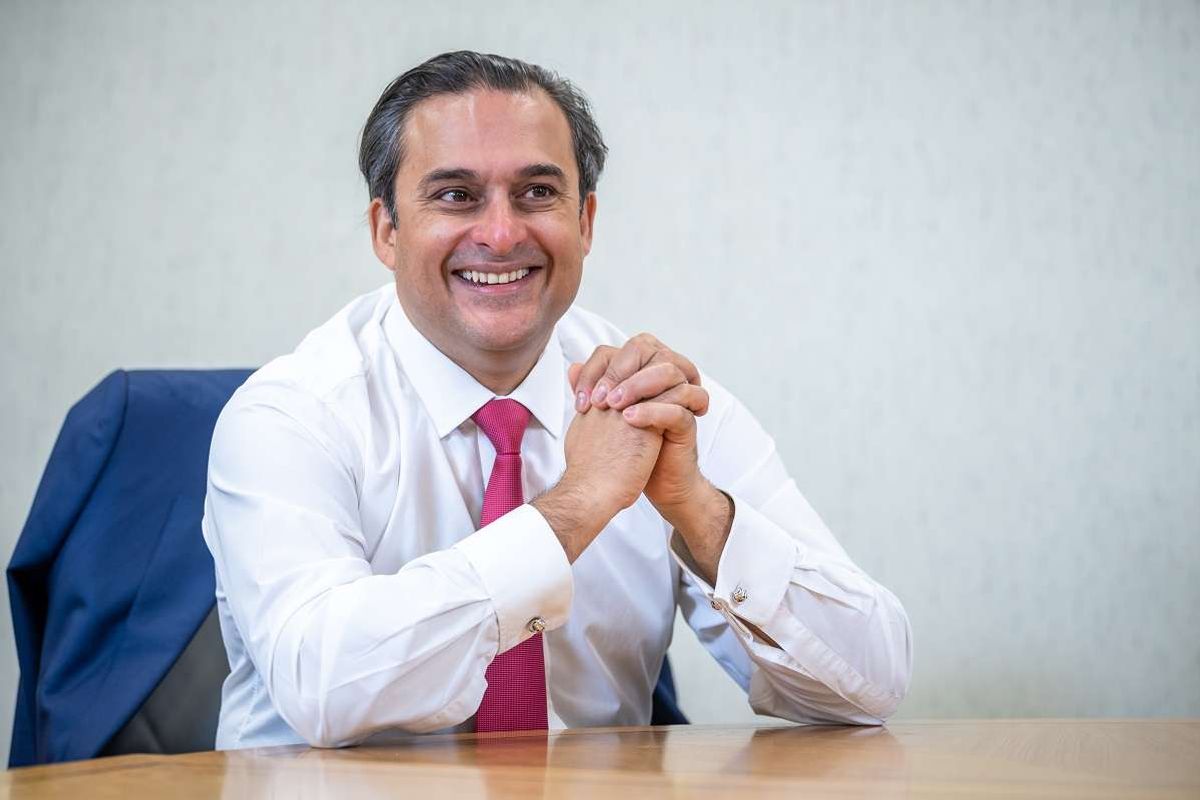Asian Trader: What does 50 years of Bestway means to you – as a family, as a business, and as part of the contribution that South Asians have made to the UK?
Dawood Pervez: Everyone in the Bestway’ family feels immense pride in reaching this landmark. For those of us who have been part of the journey from the beginning, it is not just about the phenomenal growth of the business, but also about the wider social impact. Through the Bestway Foundation, we’ve been able to support health and education programmes in the UK and Pakistan, creating real and lasting change in the communities we serve.
At its core, this anniversary is a celebration of Sir Anwar Pervez’s vision. He founded Bestway on the principle of for independent retailers, by independent retailers – to provide better value, consistent availability, and the right products at the right price. That mission of helping retailers make margin and grow their businesses is still what drives us today.
AT: What are the greatest achievements of Bestway and the inspiration behind them?
DP: Our biggest achievement is first and foremost the establishment and rapid growth of the business by Sir Anwar Pervez, based on his true pioneering spirit and vision.
Bestway became the cornerstone of the independent retail sector, enabling a generation of entrepreneurial retailers to set up in business, earn a good living, and contribute to British society. For many immigrant communities, including those expelled from Uganda and Kenya in the 1970s – our depots became a gateway and an enabler to social mobility and independence.
At the same time, we grew and thrived in a period when supermarkets were expanding rapidly. While others were in a “space race,” Bestway stood firm as the home of the entrepreneurial retailer, and that positioning has endured to this day.
Today, we are proud to stand as the UK’s 7th largest family business and 13th largest privately owned enterprise, with a wholesale arm that now contributes close to £3 billion in sales. It is this combination of commercial growth and social contribution that we believe defines Bestway’s legacy and will continue to guide us into the future.
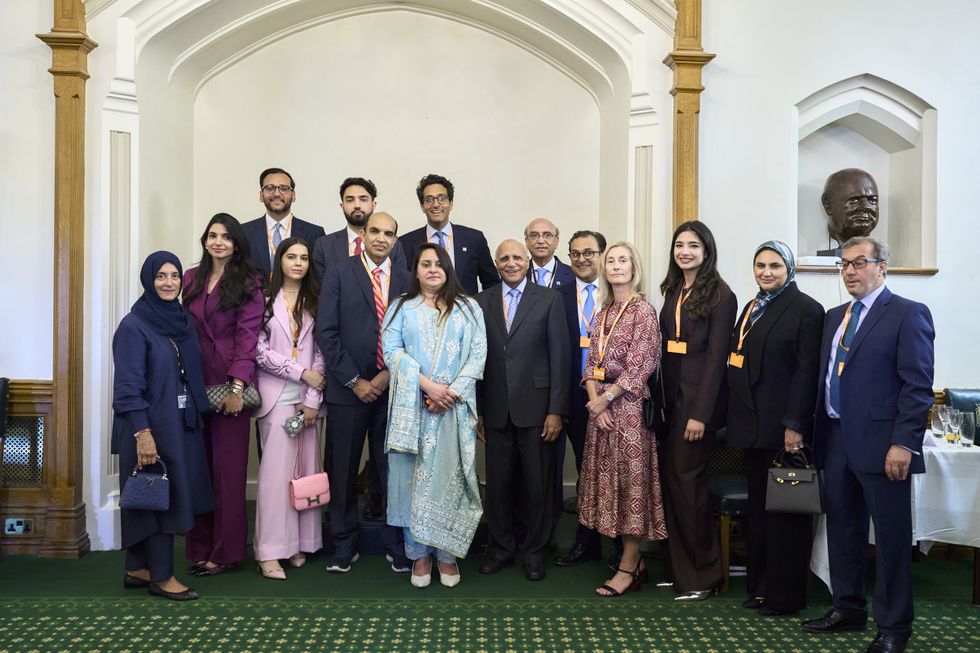
AT: What are some of your memories of the early days – how different was it from where the industry is now?
DP: Some of my earliest memories are of visiting the depots with my father and being part of the action. The buzz of retailers coming in, the energy of the teams, and the sense of family and community made a lasting impression on me. From the very beginning, Bestway wasn’t just about selling cases – it was about supporting independents to stand on their own feet and thrive.
When our first depots opened, Britain’s shopping habits were changing dramatically. People were moving away from the local butcher, baker, or greengrocer and towards the big supermarkets. That “space race” shaped the industry for decades. But even then, independent retailers kept their place in society, adding value to their communities, and Bestway was there to champion them.
By the early 2000s the landscape had shifted again. Supermarkets had moved into smaller footprints, competing directly with convenience. Consumers were shopping more frequently, eating out more, and demanding better chilled, fresh and food-to-go options. Bestway was already adapting, raising standards and ranges so independents could compete and win.
Fast forward to today, and the pace of change hasn’t slowed. But what’s remarkable is the enduring strength of local retail. Convenience stores are not only commercially relevant, they also deliver huge social value: cutting emissions by encouraging people to shop locally, reducing food waste, improving wellbeing by providing social connection, and supporting the fabric of local communities.
Bestway has kept pace by constantly evolving. From organic growth to acquisitions such as Conviviality and Palmer & Harvey in 2018, Costcutter in 2021, and Adams Foodservice in 2024. That latest step reflects the continued rise of catering and eating out, trends that began with pre-packed sandwiches in the ’70s and café culture in the ’90s and have now grown into an £11bn takeaway and foodservice market.
So yes, the industry is very different today. But from those early days of going into depots with my father right through to now, one thing hasn’t changed: Bestway’s role as the cornerstone of independent retail, helping entrepreneurial shopkeepers adapt, grow and remain at the heart of British life.
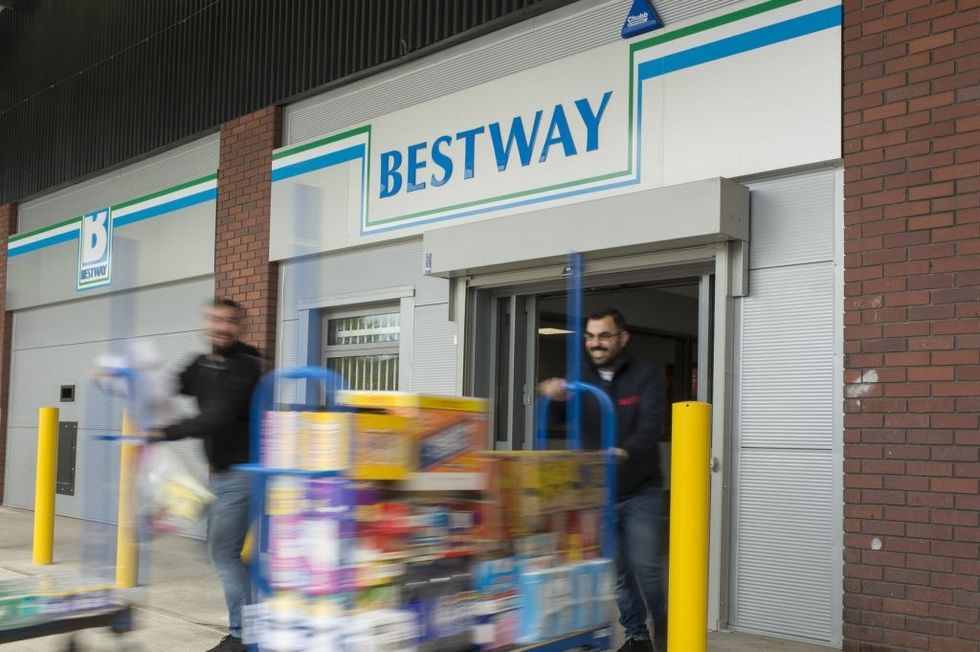
AT: Is change in the sector speeding up or slowing down? There have been so many transformations that it seems we need a pause for breath.
DP: The truth is that change in our sector rarely slows. Consumer habits are evolving all the time, whether driven by technology, policy, or wider societal shifts. Lockdown was a dramatic example, but even since then we’ve seen the growth of food-to-go, the rise of healthier options, and now the early adoption of AI and digital tools to streamline supply chains and improve efficiency.
Will there be moments of consolidation? Almost certainly – the industry is highly competitive, and we may see further structural changes. But I don’t believe we’ll see a pause for breath in the way the question suggests. A new government will bring fresh policies that influence consumer behaviour, and retailers will continue to face pressures on costs, regulation, and sustainability.
For Bestway, the important thing is not whether change speeds up or slows down, but how we respond. Our advantage as an independent wholesaler is agility. We can make decisions quickly, work closely with suppliers, and invest in new opportunities to support our retailers.
That’s why we’ve been able to navigate every wave of transformation for the last 50 years – and why we’re confident about the future, however fast it moves.
AT: How will the economy influence what happens next?
DP: The economy will always influence shopper behaviour – from what people buy, to how often, to where. When times are tough, value and accessibility become even more important, and that’s where convenience and impulse retailers have a natural strength. Customers shop locally, they buy what they need when they need it, and they want reassurance that they’re still getting good value.
For retailers, the challenge is balancing price and margin while maintaining the right range. That’s where Bestway plays a critical role. By working closely with suppliers, investing in price support, and using our scale to secure better availability, we help independents remain competitive, even in tougher conditions.
We don’t think anyone can predict exactly how the economy will evolve, but what we do know is that convenience has consistently proved resilient. It adapts quickly, it’s rooted in communities, and it provides a level of service and connection that big-box retail simply can’t match. Whatever lies ahead, we’ll continue to support retailers so they can protect their margins, keep their doors open, and remain the beating heart of local life.
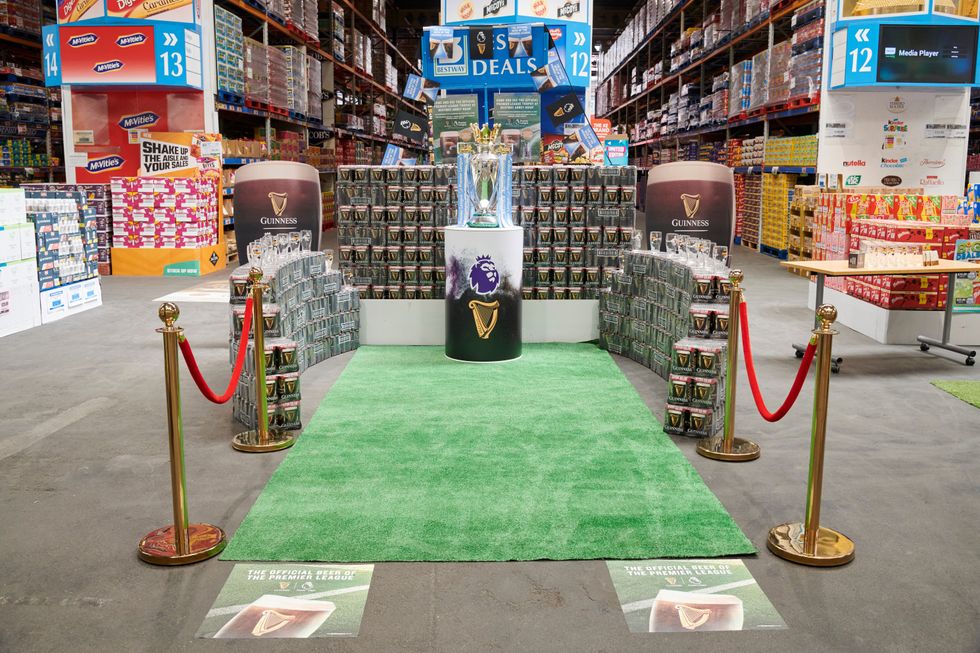
AT: Will there remain any space outside symbol and fascia, or will the indie sector become the symbol sector?
DP: Independent retail has always thrived on diversity, and we don’t see that changing. There will always be space for strong unaffiliated independents who want to run their business on their own terms, and Bestway will continue to support them through our cash & carry and wholesale network.
At the same time, symbol and fascia groups do offer clear advantages. From economies of scale to marketing support and improved supply terms. For many retailers, that’s the right route to drive growth and stay competitive, and it’s why we’ve invested so much in Best-one, Costcutter, Bargain Booze, and Wine Rack.
We don’t think this is about one model replacing the other. It’s about giving retailers choice. Some will see real value in joining a fascia, others will prefer the independence of staying unaffiliated, and we’re committed to supporting both.
What matters most is that every retailer has the tools, range, and value they need to succeed in what is still a very competitive market.
AT: How do you see own label ranges?
DP: Own label has already become a critical part of the mix, and we believe its role will only grow. Customers today are looking for value without compromising on quality, and own label delivers exactly that. For retailers, it’s also a way of differentiating, offering something unique that isn’t available in every supermarket or discounter.
At Bestway, we’ve invested heavily in our own label portfolio, with more than 1,300 lines across categories. Ranges like Best-one Inspired and Honest Value allow our symbol retailers to compete head-to-head on price while also offering quality they can be proud to put their name to.
In the years ahead, own label will be one of the defining advantages of a symbol group. It creates loyalty, delivers margin, and builds trust between retailer and shopper. That doesn’t mean brands won’t remain important – they will! Even in tough times, consumers seek out the larger brands first.
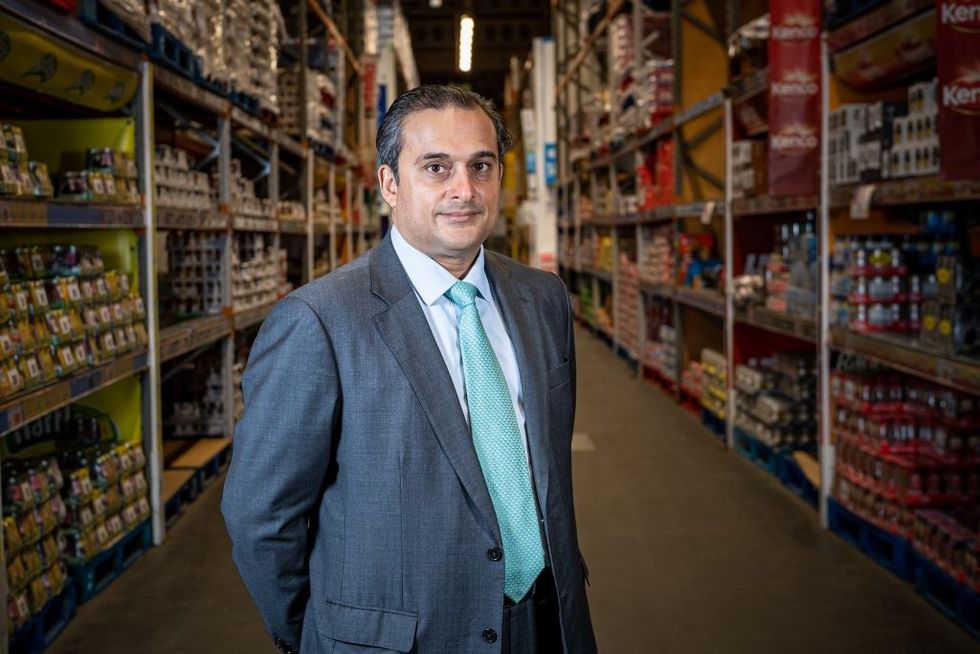
AT: Will wholesale be disintermediated?
DP: We don’t see wholesale being disintermediated – quite the opposite. Our role has never been more important. Wholesalers like Bestway bring unique value that neither suppliers nor retailers could replicate alone: scale, logistics expertise, credit facilities, and the ability to service tens of thousands of customers efficiently across the country.
What is changing is how we deliver that value. Technology, data and digital tools are helping us work smarter with suppliers and retailers, from vendor-managed inventory to real-time sales insight that improves ranging and availability.
Far from removing wholesale from the equation, these innovations make us an even stronger partner in the chain.
Of course, the landscape will continue to evolve, but the fundamentals don’t change. Retailers need the breadth, value and service we provide, and suppliers need the route to market we deliver. Wholesale isn’t being bypassed, it’s adapting, investing, and growing to meet the needs of a fast-changing market.
AT: What’s the next big thing in convenience – any surprises for 2026?
DP: If the last few years have taught us anything, it’s that convenience never stands still. We don’t believe in crystal-ball predictions, but there are clear trends shaping the future. Food-to-go and “on the move” eating will keep growing. Healthier ranges, low/no alcohol, and functional drinks are becoming mainstream, and technology is making a real difference – whether that’s AI in forecasting and stock management, or smarter digital engagement with customers.
For 2026, I expect convenience to continue to blur into foodservice. We’re already seeing retailers becoming mini hubs for coffee, bakery, hot food and fresh meals, and that crossover will accelerate. Sustainability will also be a bigger driver: packaging, supply chains and local sourcing will all matter more to shoppers.
As for surprises … In convenience, the surprise is often the pace, not the direction. What feels like a niche today can become mass market almost overnight. Energy drinks, vape, and plant-based have all shown that. The key is being agile enough to spot the shift and scale quickly. That’s where Bestway’s strength lies, in helping independents adapt fast and seize the opportunity.

AT: The next 50 years – what are your personal plans and ambitions?
DP: When I became MD in 2018, we were immediately hit with some of the most turbulent years our sector has ever faced – Brexit, Covid, inflation, supply chain shocks, and an unprecedented wave of regulation.
I’m proud of how we came through those challenges stronger, with turnover now around £3bn and four major acquisitions successfully integrated. Just as important has been building a senior leadership team that is now the best in the market.
Looking ahead, my ambition is not to predict the next 50 years – none of us can! But to make sure Bestway is fit for the future, whatever comes. That means continuing to invest in technology, supply chain and own-label innovation, supporting independents to thrive in every part of the UK, and making ESG and sustainability central to our strategy.
From reducing emissions in our logistics to driving energy efficiency in depots, and from tackling food waste to widening healthier choices in-store, we want to lead the way in building a more sustainable wholesale and retail sector.
The next 50 years won’t look like the last, but Bestway will remain exactly what Sir Anwar Pervez intended it to be: a business at the heart of independent retail, creating opportunity, supporting communities, and doing business in the right way.
AT: Do you have a Diwali message for our readers?
DP: On behalf of everyone at Bestway Wholesale, I’d like to wish our customers, colleagues, suppliers and their families a very Happy Diwali.
Diwali is a time of light, hope and togetherness – values that resonate deeply with us as a family business rooted in communities across the UK. We are proud to support independent retailers who serve those communities every day, and festivals like Diwali are a reminder of the diversity and strength that makes our sector so special.
May this Diwali bring prosperity, good health and happiness to you and your loved ones.

